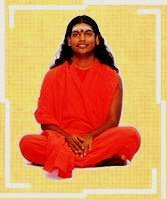Q. Does true spirituality mean not to have any desires?
No, that is the wrong way of looking at it. From my experience, rather than cutting down desires, harness your inner energy better, so that you can fulfill your desires.
Q. But in modern-day life, there are too many desires, too many expectations. How do we reduce them?
To reduce desires is to reduce the richness of life. As I said, the important thing is to create the energy inside to fulfill those desires. There is nothing wrong in having desires, but you should work hard towards fulfilling the desires. Even if they are material desires, even if you want to buy a Benz car, nothing wrong. Meditation can give you the energy to fulfill even materialistic desires.
Q. But how can you go on increasing your desires, instead of leading a contented and desire-free life?
Don’t ever think of a contented life as a spiritual life. Sattva (goodness) and tamas (lethargy) may look the same on the surface. Do you think that anyone who wears simple clothes and sits on a mat on the floor is more sattvic and contented? That could be only the external appearance. It could also be that simply because he doesn’t have the energy, he may make do with whatever he has. Resignation and contentment are not the same, though they may appear so.
Q. But what if your mind is naturally content with what you have?
That kind of a mind is the natural by-product of spirituality. Don’t think that it can lead you to spirituality. It happens as a natural by product of spirituality. It happens from within. You can’t learn the attitude of contentment and try to make that a stepping stone to spirituality. People always ask you to learn to be content. Be very clear, you cannot learn to be content, you cannot acquire the attitude. Contentment has to flower within you as a natural result of spirituality, of meditation. Through meditation, you get a deep satisfaction from life, which allows you to be content with whatever you have.
______________________
This excerpt has been taken from the book: Uncommon Answers to Common Questions
Ask The Master: 27 Oct 2007
Oct 27, 2007 at 10:08 AM

Series:
Ask The Master
![]()


 to view a larger map and get directions
to view a larger map and get directions











